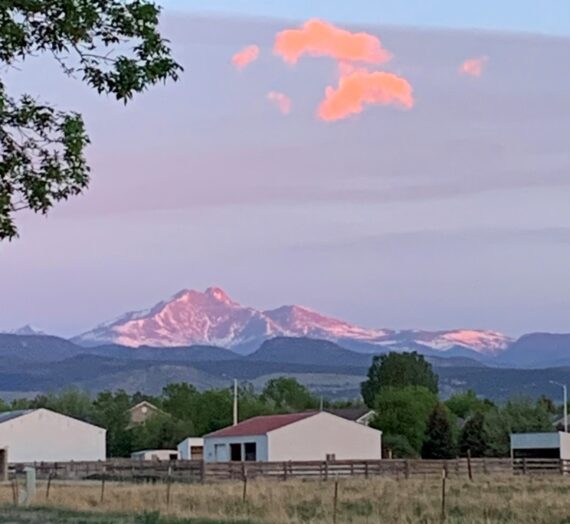Depression vs Anxiety
While I was formally diagnosed with chronic depression, I was never officially diagnosed with anxiety. I self-diagnosed anxiety because I knew it wasn’t depression, which I knew very, very well, and because I had learned the power of educating yourself as a way to help heal yourself.
Depression and anxiety hold many similarities. They both involve uncontrollable feelings of often vague origin, and they both involve some level of hopelessness and helplessness. Both are also deep to the point of affecting every part of a person.
The differences between anxiety and depression, for me, was that depression felt like a dark pit while anxiety felt like a heightened (i.e., overly sensitive) state of awareness. In other words, depression was a low energy state while anxiety is a high energy state.
Another connection between the two involves the idea that any lack of control can lead to depression without the right thinking to surround it, and anxiety certainly feels like no control. Yet, all my efforts to gain control as much as I could over whomever I could were fruitless. Only when I finally gave up seeking control did I discover healing and victory over depression.
The Physical Component
Another is the physical component, which I cannot ever dismiss or consider too lightly. It has a huge role to play both in depression and anxiety. The physical aspect of the self — my health and wellness — played a significant role in my whole depression/anxiety story. Staying physically healthy and making adjustments as I age go a long way in maintaining mental health. The two — mental and physical — go hand-in-hand, and neither part should be ignored.




Mark Allman
I wonder if depression starts with anxiety never being dealt with? It is tough to feel bad and not be sure what is dragging you down. I do feel like anxiety makes you want to do something to lessen it if you knew what to do while depression often seems to leave you wanting to do nothing therefore nothing will change. A dangerous place to be.
Kari Scare
Yes, a very dangerous place indeed. For me, anxiety certainly can lead to depression. It can get to the point that you'll do anything to get it to stop, and desperation does not always lead us to make the right choices. So, I plan ahead of time on how to deal with anxiety. I just know it's a part of how I operate right now, and I know what to do when it hits. And yes, depression can start when anxiety is not dealt with. My depression came because I did not know how to deal with the emotions of life. Until I did learn to deal with them, depression was my default mode of operation. Anxiety just pushes me to take action.
rickd3352013
I think Mark has a good sense of the origins of the problem – free-floating anxieties are often found at the beginning of a bout of depression. A fair analogy would be driving into the outer fringes of what will be a gully-washer of a thunderstorm. A drop here, two drops there on the windshield, no big deal – but the frequency with which they multiply and feed off one another and the next thing you know, your wipers won't keep up. Much more? You need to pull off the road because you simply cannot see how to continue forward.
I know this much the same way Kari does – through life.
My recent post Reality Check – Part One and Two
Kari Scare
Both of you hit on a key for staying out of the pit… get at those free-floating anxieties while they are single, sporadic droplets and before they turn into a deluge. The only way I stay away from the pit is by dealing with feelings and emotions and whatever as soon as I can after I become aware of it. Letting it fester is like creating your own storm.
cycleguy
Since I'm not a specialist in this area it is tough for me to answer. I see the two as opposite ends of the spectrum in reaction but linked together as well. Sort of like Siamese twins although they can be separated in time. I'm not sure I'm making myself clear.
My recent post Cornfused*
Kari Scare
So glad you are in this discussion because you bring up a much-needed perspective. If we can find a way to express this concept, the interaction and connection of anxiety and depression, to those who have not experienced them, then we better understand it ourselves. I don't think they're opposite ends of the spectrum with regard to internal experience, but perhaps they appear that way from the outside. For me, depression is not the first reaction I have when stress and struggle weigh on me. Anxiety comes first. Depression comes only after I don't deal with other emotions, including anxiety. That's the best explanation I have at this point, but I do realize that I need to think and pray on this more in order to properly address it in the book.
cycleguy
you can see why I am asked about making sense. I'm not sure I can explain how or what I am thinking. Are the two linked together? Can one have anxiety but not depression? Or depression without anxiety? I'm at a loss to explain or answer.
My recent post Cornfused*
Kari Scare
At this point, I can only speak for myself and say “yes” they are linked together. Anxiety is an indication of something being off that needs fixed before it compounds and leads to depression. Depression causes anxiety in that I feel helpless to feel like I should feel and that I’m letting others down by being depressed. An absence of feeling anxiety when I am depressed is usually when I’ve given up trying to not be depressed or when I feel like I’ve broken through and am on my way out. So while one may operate without the other, they are not separate in that they link together. I’m lost to explain it too, and this tells me this is a point of research as I write the book.
Mary
I have experienced both to some degree. I like you Kari still experience anxiety quite often. I too believe that depression while being sometimes a physical condition of the body, often for many begins as anxiety and stress and overlooking the problems or trying to stuff them instead of dealing with them. I believe that as I have come to recognize the triggers of my anxiety and better learn to deal with it, that I avoid sliding deeper into a depressed and overwhelmed state.
This has been a good discussion and thanks again Kari for sharing about your struggle and your victory. You give all of us a better understanding and opportunity to grow in love and compassion.
Kari Scare
Recognizing those triggers is so very important and key in staying out of the pit. That is my current struggle regarding depression.
tc Avey
If I get wore out, too tired, it's easy for small things to become "BIG". When I'm tired it's easy to let myself go down a negative path. Recognizing that helps me seek times of rest and Spiritual nutriment.
I'm guilty of worry/anxiety. For me, it stems from not trusting God enough. Realizing that helps me take the issues to God. It doesn't always release me from my "worry" but it's the first step to overcoming those feelings and being freed from them. One step at a time.
Kari Scare
The physical is definitely tied into this. I know this from personal experience. Overcoming depression & anxiety likely won't happen without some attention being paid to details in the physical aspects of our lives. Worry definitely is a factor in all of this as well. Just verbally saying, "I trust you, Lord" helps me tremendously. You're so right about taking one step at a time; they really do add up to make a big difference.
blessingcounterdeb
I think I've shared with you before that I was diagnosed with "agitated depression/anxiety" almost 20 years ago. I never understood why my insides always felt like I'd had just a little too much caffeine. I think the mental and physical are closely linked, because although taking a lose dose SRI helps if I don't control my thoughts I can still end up feeling anxious and agitated. Great series Kari!
My recent post Inspiration for a Balanced Life
Kari Scare
Yes, you have shared that Deb, but it fits well to share it again here too. Sounds like a nasty mix of depression and anxiety and really illustrates the many forms these disorders can take as well as the many forms healing can take. Thanks for the support & encouragement!
David
Depression and anxiety is one of the most common mental health problems for young Australians. About one in every four people aged 12 to 25 will experience depression. Anxiety is distressing, and it can stop you achieving your full potential, but it can be treated. Overcoming Severe and Persistent Depression
My recent post Forex Signals Provider: Simo FX Signals Review
Kari Scare
Depressing statistics, David. What have you found helpful in treating anxiety & depression?
Springdaleclnc
Great post. Thanks for sharing the post. Most of the people who experience depression suffer with some or other type of anxiety. It was quite common to experience both depression and anxiety. Contact your nearby doctor or psychologist immediately if you have any suicidal thoughts, don't loose the hope and try to be positive. Many types of therapies and treatments are available to lower, but it takes some time to recover from these.